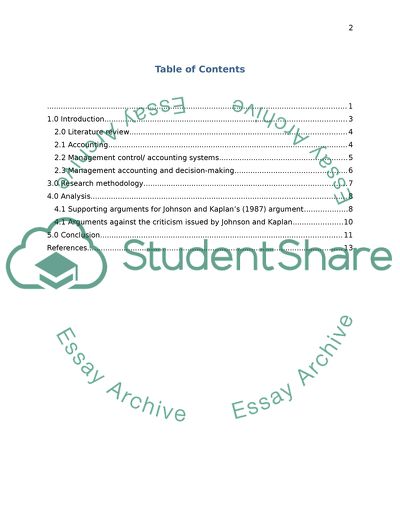Cite this document
(MANAGEMENT ACCOUNTING Essay Example | Topics and Well Written Essays - 2500 words - 1, n.d.)
MANAGEMENT ACCOUNTING Essay Example | Topics and Well Written Essays - 2500 words - 1. https://studentshare.org/finance-accounting/1805005-management-accounting
MANAGEMENT ACCOUNTING Essay Example | Topics and Well Written Essays - 2500 words - 1. https://studentshare.org/finance-accounting/1805005-management-accounting
(MANAGEMENT ACCOUNTING Essay Example | Topics and Well Written Essays - 2500 Words - 1)
MANAGEMENT ACCOUNTING Essay Example | Topics and Well Written Essays - 2500 Words - 1. https://studentshare.org/finance-accounting/1805005-management-accounting.
MANAGEMENT ACCOUNTING Essay Example | Topics and Well Written Essays - 2500 Words - 1. https://studentshare.org/finance-accounting/1805005-management-accounting.
“MANAGEMENT ACCOUNTING Essay Example | Topics and Well Written Essays - 2500 Words - 1”. https://studentshare.org/finance-accounting/1805005-management-accounting.


